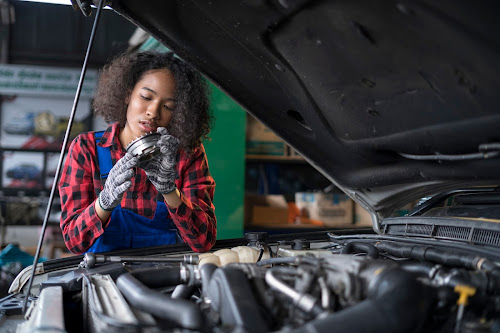THE ULTIMATE GUIDE TO TYRE CARE AND MAINTENANCE
Tyre care and maintenance are important factors of vehicle maintenance since it is dangerous and against the law to operate a vehicle with non-roadworthy tyres. You must keep in mind a number of factors in order to get satisfactory performance and mileage. The quickest and simplest solution is to get your wheels checked for damage, wear, and correct inflation.
Check out our comprehensive guide to maintaining your tyres so that you may drive securely and safely.
• Ensure adequate tyre pressure.
Not only is having properly inflated wheels essential for safety, but also for optimum performance and efficient use of gasoline. You should be sure to get them tested with a reliable pressure gauge at least once each month (when they are cool). For additional information, see some important automobile Mercedes tyres price care advice.
• Maintain the correct pressure on your tyres.
Keep your wheels filled to the optimum recommended pressure level to maintain their durability. You may easily locate it in the owner's handbook or on the placard for your car.
Over-inflating them will make them stiffer and might cause unfavourable car vibrations, which will make driving unpleasant. On the other hand, underinflation may cause warmth as well as catastrophic mechanical harm from severe cracking and subsequent air loss. Additionally, it lessens load capacity and raises sidewall flexing and rolling resistance.
Always consult your owner's handbook if the tyre pressure warning system activates.
• Maintain proper wheel alignment, balance, and tyre rotation.
You should rotate your wheels at maximum intervals of 6,000 miles/10,000 kilometres, or in accordance with the manufacturer's guidelines, to guarantee even wear and tear. Vibrations and uneven Audi tyres price wear can be caused by a lack of wheel rotation, under- or over-inflation, worn-out suspension elements, misalignment, and wheel imbalance.
Both new and used tyres might have different wheel alignments, but used tyres are almost usually less expensive. Consider the benefits and drawbacks of purchasing second-hand tyres.
• Limit the amount of wheel spinning
When your car becomes stuck in ice, snow, mud, or sand, try not to rotate the wheels too much. Instead, to release your car, rock it gently forward and backwards. Because doing so might cause the wheels to overheat and sustain permanent damage.
Keep in mind not to approach or stand behind moving wheels. Take the time to push your car out of the snow, for instance.
• Uneven tread wear and damage
Check your wheels periodically for signs of excessive wear because this might lead to frequent punctures. Additionally, driving in rainy weather conditions might result in accidents if your tyres are virtually bald or worn out. The minimum tread depth is 1.5 to 1.6 millimetres. In reality, tyre wear indicator bars are positioned in the tread grooves on all new wheels.
• Never attempt to install tyres.
Getting your wheels mounted by a professional is always preferable to doing it yourself. Because poor installation techniques might lead to a wheel explosion and cause significant damage. Follow the manufacturer's directions and make sure the wheel's diameter matches the rim's diameter. Avoid putting wheels of the same size and shape on the same axle for optimum handling and control. Instead, install four wheels that are the same size and kind as those recommended by the car mechanical services near me.
• Proper replacement and repair
Get your wheels checked for damage at least once a month to maintain driving safety. Get the wheels checked by the auto professionals if you have any concerns regarding problems like knots, penetrations, bulges, air loss, or fractures.
• Caution
Follow the manufacturer's advice when changing your worn-out pair of wheels and refer to your owner's handbook. Never swap an extra load (XL) tyre for a standard load (SL) tyre. Use only wheels that can bear the proper amount of weight, as recommended by the car's manufacturer. even if you purchase a new set of wheels that are not the same size as the original equipment. Hire a competent installer to assist you to choose wheels that are properly inflated and have the capacity to handle the weight.
Your car's wheels should retain their original outer diameter and load-carrying capabilities to prevent overloading. As overloading can lead to wheel damage, higher fuel consumption, and poor vehicle control.
Maintain your wheels and tyres so they can last longer than you think. Ask us for any guidance, Visit Tyre Experts for your car tyres service in Dubai we'll be pleased to help you out right away.




Comments
Post a Comment